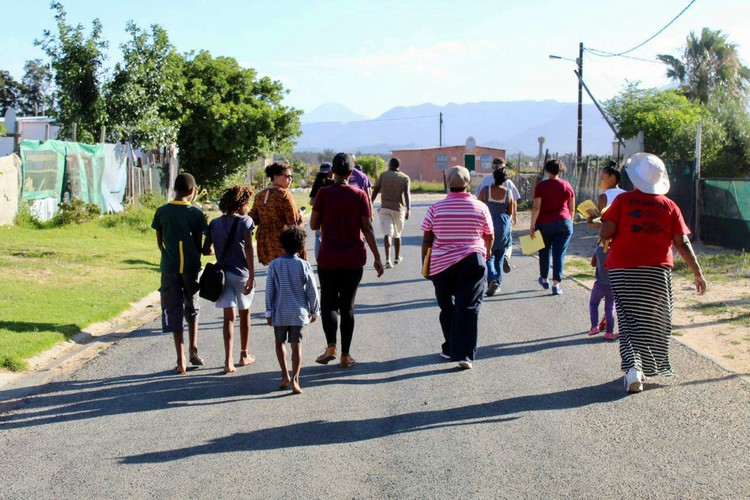Covid-19: “People thought it was a normal holiday” says Boland community activist
Daily challenges, such as access to water, just got bigger in rural Western Cape
The daily challenges those living in rural townships face will be amplified during the nationwide lockdown, says Naomi Betana, a community activist with the Fighting for Water Justice Coalition in Ceres.
On Monday, GroundUp asked how communities in the Western Cape Boland were responding to measures put in place to slow the spread of Covid-19.
“Social distancing is working fine in the middle to higher class suburbs. The problem is that we don’t have a local response team in Witzenberg,” said Betana.
“What we are seeing in these communities is a lack of understanding on what the lockdown is and the impact of Covid-19 should it come to our areas. Wherever we went, people thought it was a normal holiday,” she said.
Betana said that while Ceres town centre appeared fairly quiet, the situation in the townships was “business as usual”.
Sophia Thomas, in Wolseley, said many people were going into town, children were playing in the streets and the elderly were going to collect their social grants. There was no increased patrolling or visibility of police where people live, she said.
In Tulbagh, Winston Pietersen described how busy the town was on Monday morning with most of the shops still operating. Police were patrolling, but the town looked the same as it would on any Monday. People were not staying at home, he said.
In Ceres, Jonathan Alexander from the district taxi association said, “One of our problems is that the times of some stores opening doesn’t match the transport restrictions. For example, Capitec only opens at 9am, so people are still queueing and our taxis have to wait for them. On Friday, the factory workers got paid so most of them used taxis to do shopping. Those who miss the taxis have to walk up to ten kilometres.”
The coalition was able to get electricity restored to households disconnected prior to the lockdown, and to stop water meters being installed, but there was still a lot of work to be done, said Betana.
“The biggest challenge now would be to get water tankers to all the informal settlements. This morning we heard about a farm outside Tulbagh where there is no access to water. I received a message from the Nduli township saying there are no police patrols, while people and children are out in the streets. We have also seen a huge increase in people asking where they can get food because of the confusion on whether or not spaza shops can be open,” she said.
“We are not sure what is happening in our farming communities. We asked Women on Farms to monitor what is happening, if workers are now only able to access the farm’s food store. Another issue is that factories are still open,” she said.
“We have been engaging a lot with the taxi association who are trying their best now that they have a better understanding of the impact and importance of social distancing. Ceres central town is doing their best but it comes down to a lack of understanding by communities,” she said.
© 2020 GroundUp.
This article is licensed under a Creative Commons Attribution-NoDerivatives 4.0 International License.
You may republish this article, so long as you credit the authors and GroundUp, and do not change the text. Please include a link back to the original article.



